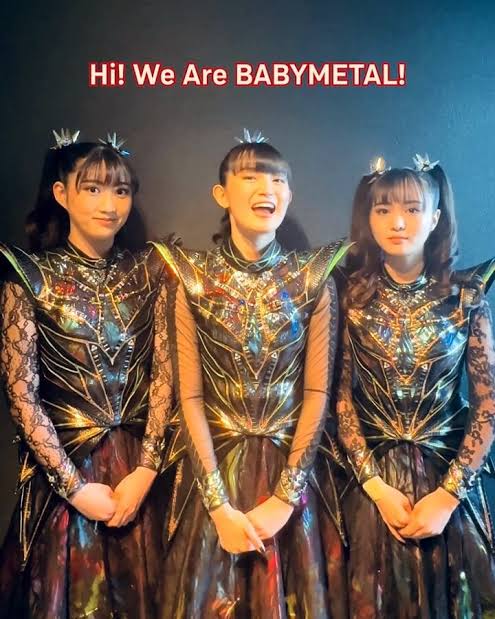Shocking Revelations: Babymetal Lead Singer Tells Media the Dark Truth Behind the Glittering Stage

In a jaw-dropping interview that has sent shockwaves through the global metal community, Babymetal’s enigmatic lead singer, Suzuka Nakamoto (Su-metal), has broken her silence about the unseen struggles and controversies behind the wildly popular Japanese kawaii-metal phenomenon. The revelation has ignited fierce debate among fans and critics, raising questions about exploitation, industry pressure, and the true cost of international stardom.
“It Wasn’t Always Fun”: Su-metal Opens Up About Life in Babymetal
Speaking to a Japanese entertainment magazine earlier this week, Su-metal admitted, “There were times when I felt more like a product than a person. We were pushed to maintain an image that sometimes didn’t reflect who we really were.” While many admired the group’s fusion of cute J-pop aesthetics and heavy metal intensity, Su-metal now claims the polished performances came at a personal cost.
Fans have long speculated about the strict control exerted by the group’s producers, but Su-metal’s comments confirmed some of the worst fears. She described the “idol-like grooming” of young girls for a heavy-metal audience, revealing they had limited input into the group’s creative direction during their early years.
Mental Health, Exploitation, and Creative Control
Perhaps the most alarming part of the interview was Su-metal’s disclosure about the mental health toll of being in Babymetal. “There were days I cried before and after shows. I loved performing, but the pressure to be perfect and to never break character was exhausting.”
Behind the scenes, the management reportedly imposed rigid schedules, strict diets, and discouraged personal relationships to maintain the group’s fantasy-like mystique. “They didn’t want us to grow up too fast—unless it suited the brand,” Su-metal added cryptically, hinting at a manipulative industry culture more interested in profit than the performers’ well-being.
Fanbase Reaction: Split Between Support and Denial
The revelations have left the global Babymetal fanbase deeply divided. Some have expressed support and sympathy, praising Su-metal’s bravery for speaking out. Others have accused her of trying to tarnish the legacy of a group that broke international boundaries for Japanese music. “She’s just bitter,” one commenter wrote. “Without Babymetal, no one would even know her name.”
But this isn’t the first time concerns have surfaced. Former member Yui Mizuno (Yuimetal) mysteriously exited the group in 2018, citing health issues. Now, in light of Su-metal’s statements, fans are re-examining that departure through a darker lens.
Industry Accountability: Will Anything Change?
Critics are calling for greater transparency and ethical reforms within Japan’s idol and music industries. “This isn’t just about Babymetal,” said Tokyo-based music critic Daisuke Harada. “This is about a system that packages youth, innocence, and rebellion into something marketable, without regard for the humans behind the curtain.”
While the Babymetal brand continues to thrive—with sold-out shows and global tours—this interview may mark a turning point. Su-metal’s bold words are not just a personal confession; they’re a warning about how the machinery of fame can chew up and discard even the most talented voices.
Final Thoughts
Babymetal revolutionized what it meant to be a “girl band” in the metal scene. But as Su-metal pulls back the curtain, fans are forced to confront a haunting question: At what cost was this revolution achieved?
Whether this will lead to lasting changes or be swept under the rug like so many idol industry controversies remains to be seen. But one thing is certain—Babymetal’s perfect, sparkly façade has been permanently cracked.









